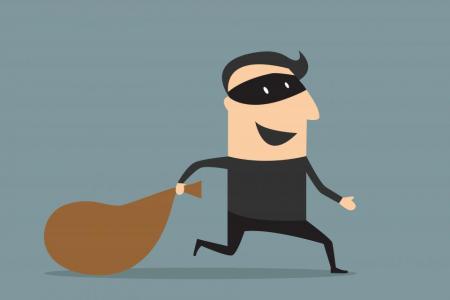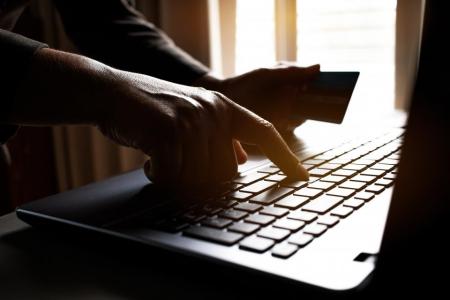Ultimate Guide to Identity Theft Protection Online & Offline
Remember those popular television commercials about identity theft? You know, where the 50-year-old man's voice is substituted with that of a young female who went on a shopping spree after emptying his bank account because "it's not like I'm actually paying for it, hahaha". These commercials may have seemed sort of funny initially, but the underlying message is serious: identity theft is real and it can happen to anyone.
Protecting your identity is more crucial than ever before in today's online world. The ability to conduct business, make purchases, and bank online has simplified our lives. This ease of life has also required us to upload very personal information about ourselves, including financial data, to the World Wide Web, making us vulnerable to hackers just waiting to snatch that information.
We are connected to the internet 24 hours a day, 7 days a week. That's 10,080 minutes a week that a hacker could potentially steal your identity and cause you severe financial harm. Most people think that identity theft will never happen to them and because of this, they don't take the necessary steps to protect themselves from falling victim.
Did you know that in 2017 the Internet Crime Complaint Center reported that victims lost more than $66.8 million dollars due to online identity theft crimes? That should set off some alarm bells for you to take action to protect yourself from becoming a hacker's next victim.
7 Ways to Protect Your Identity Online
1. Keep Your Devices Secure
First and foremost, to protect your identity and financial information, evaluate whether your computers and mobile devices are secure. Install and regularly update anti-virus software, use only networks (Wi-Fi connections) you know are secure when logging into your accounts, maintain important emails regarding your finances, and institute passwords on all of your mobile devices.
Most smartphones now have fingerprint security technology to unlock the phones themselves and many financial apps have the option for you to use your fingerprint to log in to your accounts. Take advantage of these features. This added level of security will help to protect your accounts in the event that your phone is stolen or lost.
2. Use Strong Passwords
Creating a strong password is easy. Despite the thought that longer passwords are difficult to remember, there are easy ways you can complicate your passwords without confusing yourself each time you log in somewhere. Consider writing out a phrase and substituting various letters with characters and numbers. Use a variety of upper and lower case letters as well. Here's an example phrase and password creation: My dog is great = MyD0g!$Gr8 (the "o" in dog is represented with a numerical zero).
Try to use a variety of passwords for your different accounts online, that way if one account is compromised, all of your other accounts do not also become easily accessed by smart hackers. Finally, it's also recommended that you change your password on a regular basis.
3. Monitor Your Accounts
If you're not already banking online, one huge advantage to doing so is simply that you have instantaneous access to your bank account activity. Which means, if you ever become a victim of identity theft, you'll be able to see any suspicious activity straight away. Check your accounts daily and monitor carefully for any irregularities.
These accounts will often times offer features such as alerts for when unusual activity is suspected to have occurred with your account. For example, if your debit card account was used to make a purchase at a store in a state that you are not currently in, and have not recently visited, your bank will alert you to find out if the transaction was authorized by you. If it was not, they will immediately put a freeze on your account and work with you to recover the funds.
4. Don't Provide Information via Email
Identity thieves have become sophisticated in the lengths they'll go to get your personal information. Because of this, it's crucial to never provide any information by email. The government, your bank, and other financial institutions will never ask for anything online – and often, thieves will pose as these institutions to throw you off. Don't fall for it.
Additionally, never trust any email sent to you that links directly to your login page. This is the number one trick for hackers to "cloak" or "phish" you out of your own login information. Even though the site looks familiar, it may not be. These thieves have become experts at copying the look of real sites to extrapolate victim's bank numbers and more!
5. Don't Use Public Wi-Fi
If you're out in public and connected to a public Wi-Fi network, don't check your banking information. Public networks often times are not encrypted, making it easy for hackers to steal login credentials. If you must check your banking information outside your home, use your cellular-data connection or turn on your phone's mobile hotspot. Those are much more secure options.
6. Turn Off Bluetooth
In the same vein as we say don't connect to public Wi-Fi, when your phone is not connected to a Bluetooth device like your car, headphones, or speakers, turn it off. Bluejacking, bluesnarfing, or bluebugging are more prevalent now. Cyber thieves are able to tap into your phone via Bluetooth, taking information and even controlling functions within your phone.
7. Be Careful About How Much You Share on Social Media
Facebook quizzes and results are something that we see every day in our newsfeeds while scrolling. Sometimes, the answers are even comments on posts from Facebook pages that your friend or family member has liked. You know the questions that are often asked in those types of things, right? Who was your first-grade teacher, what was the name of your first pet, what city were you born in, etc? Those are the same questions that many banks and other institutions that hold sensitive information use as your security questions. When you participate in the quizzes, you may be oversharing on social media without even realizing it!
Now we aren't suggesting that you delete your social media accounts and go back to the stone age of communication. Social media can be a wonderful way to connect with family and friends out of state, meet new people, find potential employers, and discover and engage with brands. However, if you are not careful, you could be making it very easy for an identity thief to steal your information.
Identity theft goes beyond protecting your online presence. Sophisticated thieves have been stealing identities for many years before the Internet even existed. Ensure your identity is safe all around with the following tips for IRL (in real life) protection.
How to Protect Your Identity Offline
1. Secure Your Financial Information
Identity thieves often mask themselves as reliable financial institutions and ask you for critical information that a normal bank wouldn't ask you for. Never give out important information – like your credit card, Social Security Number, or even birthdate – over the phone or computer.
If you are contacted over the phone by someone claiming to be either with your bank or associated with your bank, ask them for their ID number or other personal information about them that could be verified. A general rule of thumb is that if you were "cold called" and did not initiate the contact, it should be seen as suspicious and you should use your best judgment in the situation about whether to trust the individual or not.
2. Don't Carry Important Documents with You
Unless you are literally on route to your bank, the DMV, an employer's office, or to the airport, there is absolutely no good reason for you to be carrying around your passport, birth certificate, or Social Security card on a daily basis. You are susceptible to theft at all times when you have these types of personal documents on your person. Leave them home, preferably in a safe or lockbox, and only take them out when absolutely necessary.
3. Collect Your Mail Daily
It is important to collect your mail on a daily basis to ensure that items are not being stolen from your mailbox that could contain personal information. If you are traveling, find a family member or friend that you trust who can collect your mail for you while you are away.
It's also advised that you mail letters directly at the post office rather than leaving them in your mailbox for your postal service person to collect. It may seem overdramatic, but imagine your surprise when your utility bill payments don't reach your providers on time because a thief has stolen them from your mailbox before the mailperson could get them.
4. Shred Important Financial Information
It may sound old school, but investing in a paper shredder could be the difference between your identity staying yours and someone else stealing it. Before placing confidential information in your trash, put them through a shredder and destroy them when they are no longer needed. This includes bills, bank statements, documents that may contain your Social Security number, and other financial documents. Dumpster diving is a common practice among identity thieves, so don't make it easy for them to get the information they want.
If you don't have a shredder and don't want to buy one, you could always burn your papers. However, be careful about the type of papers that you burn; glossy papers can contain plastics that are toxic for you and the air.
5. Cut Up Old/Unused Credit Cards
Even if a credit card is expired, cut it into tiny little pieces before throwing it away. Consider putting half of the pieces into one trash bag and the rest into another to ensure they are separated. Similar to the concept of shredding important financial information, you should destroy old and unused credit cards as much as possible so that a dumpster diving thief can't get their hands on them.
6. Watch Your Personal Belongings in Public Places
You set your purse or bag down for just a minute to talk to a friend you bumped into at the busy coffee shop. You leave your cell phone on the charger at the airport when you go to purchase a beverage for your flight. These are opportunities that criminals watch out for so that they can snatch your personal items that likely hold a ton of personal information. When out in public, always keep an eye on your belongings, be it your purse, wallet, luggage, cellphone, laptop, or anything else that might contain information about your identity.
Stay Diligent, Stay Protected
Identity theft continues to plague our world and the lives of many. But with new technologies on the rise, banks and financial institutions are combating the issue head-on to keep consumers like you safe and secure.
A new technology already widely available throughout the rest of the world is a chip-and-pin card, also known as an EMV or smart card. Thanks to a computer chip embedded within these, criminals are being prevented from developing counterfeit cards and the risk of fraud has become dramatically reduced.
But you should understand that in today's world, it is relatively easy for thieves to obtain all of the information they need to assume another person's identity without needing to physically steal a credit card.
Even with the new technologies coming out and more sophisticated security measures being put in place, it's ultimately up to you, the consumer, to protect your identity. Learn what to look for, make smart decisions, and follow the tips provided above and you'll be well on your way to protecting your identity. Stop into your local NCSB branch for more information on how to protect your identity and for all of your personal banking needs.
Resources







